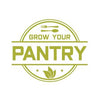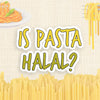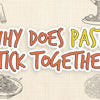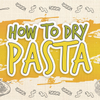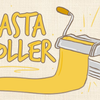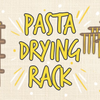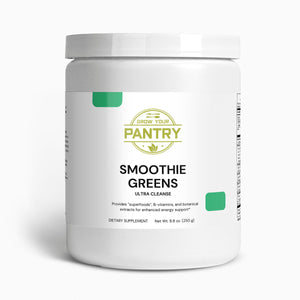Is Pasta Kosher? The Detailed Guide

While there are over 300 varieties of pasta, only a select few can be deemed as kosher. This is due to the strict guidelines that define which food qualifies for being kosher and how these rules change during certain times of the year, like during Passover. This article seeks to uncover all there is to know about pasta and kosher to eat.
What Is Pasta?
Pasta is an Italian dish consisting of dough that’s prepared using durum wheat and water. The dough gets extruded or stamped into the required shapes and can be cooked by boiling it in water. Pasta can be divided into two major categories: dried and fresh pasta. Dried varieties are produced and dried commercially via the extrusion process. Fresh varieties, on the other hand, are prepared by hand as per the traditional recipe.
What Is Kosher?
Kosher refers to food that is prescribed to a strict dietary standard in line with traditional Jewish law. Kosher is, therefore, more than just about food safety or health as the adherence to the religious tradition still holds up to date. These laws determine which food can be produced, processed, how they should be prepared and finally how they should be consumed.
There are 3 major classes of kosher food categories:
1. Pareve: includes fish, eggs, and plant based foods
2. Dairy: milk, yogurt, butter, and cheese
3. Meat (fleishig): mammals (cloven hooves) and fowls as well as any products derived from them including bones and broth
Kosher rules prohibit the combination of meat and dairy products and they should even be stored separately. After consuming meat you must wait for a designated amount of time usually 6 hours before consuming dairy products. Pareve foods on the other hand are considered to be neutral and can be consumed with either meat or dairy products.
What Is Passover Kosher?
During Passover, additional dietary laws are also observed which restrict the consumption of grains that can ferment and become leavened. As a result, wheat, oats, rye, barley and spelt cannot be consumed during Passover. Instead, matzo- unleavened flat bed, is consumed during the passover feast.
It's important to note that matzo contains wheat flour, it's prepared under 18 minutes in line with the 18 minutes rule. This rule states that the dough should be under constant movement through kneading and before its placed into the oven- a process that must take less than 18 minutes to prevent fermentation from taking place.
Is All Pasta Kosher?
All plain dried durum wheat pasta and wheat noodles, including pasta containing egg, are permitted. Pasta which is coloured and flavoured with vegetable extracts such as spinach or tomato is also allowed. Black pasta containing squid ink is not kosher. Fresh pasta is not permitted. Ref: kosher.org.uk.
How To Tell If Pasta Is Kosher
Label - Most manufacturers will often state if the product is kosher or not. If the information is not on the label or it’s illegible, you can search for the product online.
Brand - Brands that are kosher certified will often be listed in such databases and also state the same on their websites.
Ingredients - You can analyse the ingredients used to prepare the pasta and decide which is kosher and what’s not. Pasta mostly contains eggs, salt, all-purpose flour, and water- all of these are kosher.
Types Of pasta Kosher And Passover Kosher
|
Pasta Variety |
Is It Kosher? |
Is It Passover Kosher Certified? |
|
Dried Pasta |
Kosher Read more on: kosher.org |
Passover Kosher |
|
Fresh Pasta |
Not kosher |
Not kosher |
|
Gluten-free pasta |
Kosher- depending on the ingredients |
Kosher- depending on the ingredients |
|
Banza Pasta |
Kosher- Banza pasta is certified kosher by the Orthodox Union |
Passover kosher- Banza pasta is certified by the Orthodox Union |
|
Lentil Pasta |
Kosher certified |
Kosher certified |
|
Barilla Pasta |
Yes, all Barilla pasta is prepared in line with Jewish law |
Yes- all Barilla pasta is prepared in line with Jewish law |
|
Rice Pasta |
Certified kosher |
Certified kosher |
|
Chickpea Pasta |
kosher |
kosher |
|
Black pasta |
Not kosher as it contains squid ink |
Not kosher as it contains squid ink and wheat flour |
|
Passover Pasta Primavera |
Kosher |
Kosher |
Kosher By Brand What Do They Say?
|
Pasta Brand |
Is It Kosher Certified? |
|
Rana Filled Pasta |
Not certified |
|
Rustichella D'Abruzzo |
Kosher certified |
|
Pastificio Di Martino |
Kosher certified |
|
Banza Chickpea Pasta |
Kosher certified |
|
De Cecco |
Kosher certified |
|
Barilla |
Kosher certified |
Conclusion
Kosher and passover laws still hold a special role in the jewish community. Thankfully you don't have to worry about breaking the laws whenever you want to enjoy a bowl of pasta as there are many varieties out there that are kosher certified.
